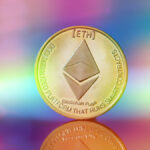In a dynamic trading environment, spot Bitcoin ETFs in the United States showcased impressive gains, drawing in $61 million in investments on their first day of the week. Leading the charge were BlackRock and Fidelity, which experienced notable inflows, while Ark Invest and Bitwise ETFs faced substantial withdrawals. In stark contrast, spot Ethereum ETFs ended their trading day on a weaker note.
What Sparked Strong Interest in Bitcoin Funds?
BlackRock emerged as the standout performer, contributing a remarkable $72 million to spot Bitcoin ETFs. As the largest asset management firm globally, BlackRock has successfully rekindled investor enthusiasm for this leading cryptocurrency. Fidelity’s ETF also performed well, attracting $8 million in inflows, reinforcing the notion of robust demand for Bitcoin.
Why Did Ethereum ETFs Underperform?
Unlike their Bitcoin counterparts, spot Ethereum ETFs faced a decline, closing down by $822,000. This downturn indicates a waning interest among investors in Ethereum, the second-largest cryptocurrency, compared to Bitcoin’s strong performance.
The contrasting performances of Bitcoin and Ethereum ETFs indicate several key takeaways:
- Investor confidence in Bitcoin remains robust, as evidenced by substantial inflows from major firms.
- Ethereum’s recent performance suggests a need for increased interest and confidence in the altcoin space.
- The actions of investors reveal their adaptability to market fluctuations, signaling potential future trends.
The resilient demand for Bitcoin ETFs amidst the struggles of Ethereum ETFs highlights shifting investor sentiments and preferences in the cryptocurrency market. This trend could shape future investment strategies as market dynamics evolve.












